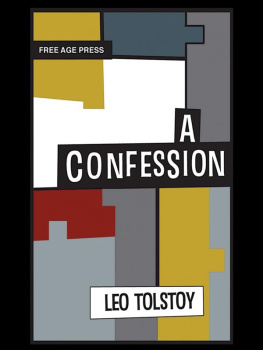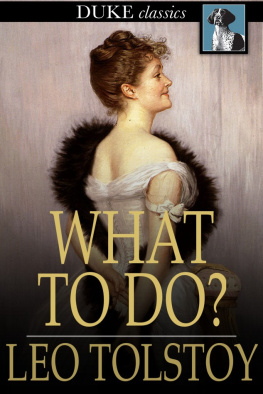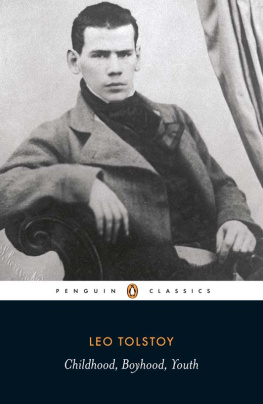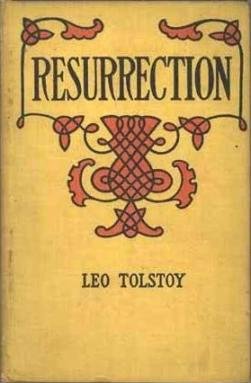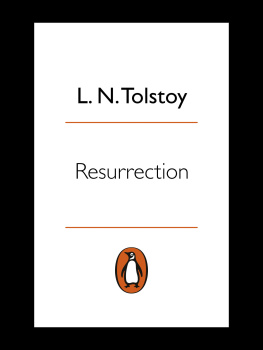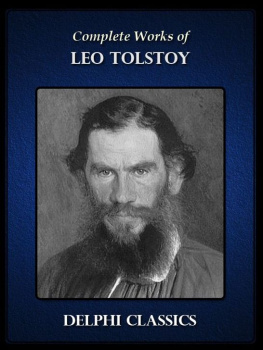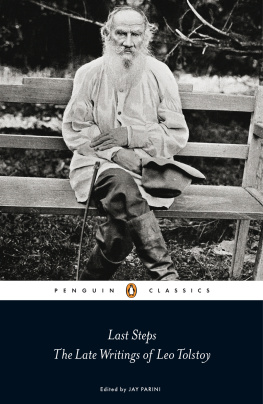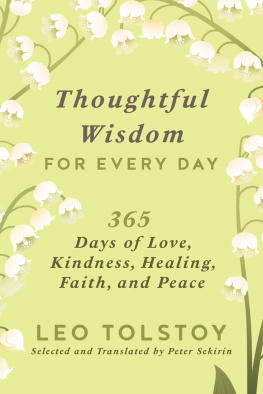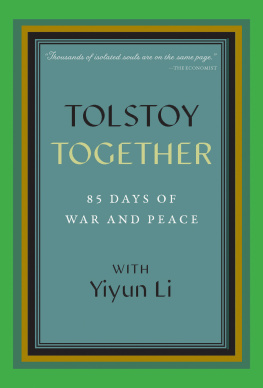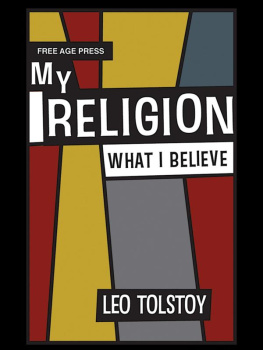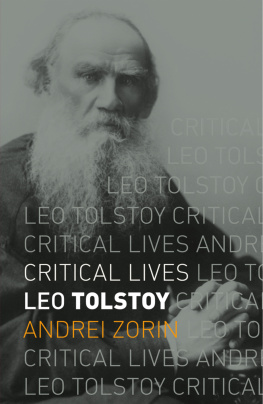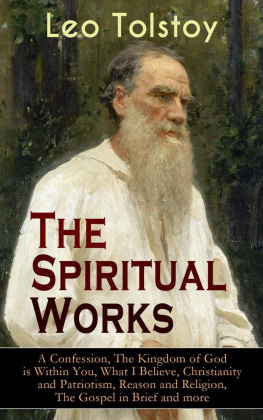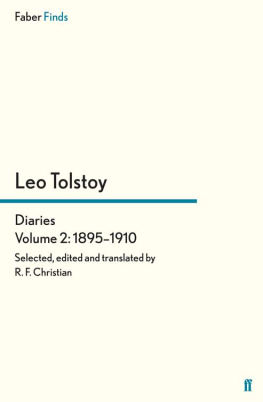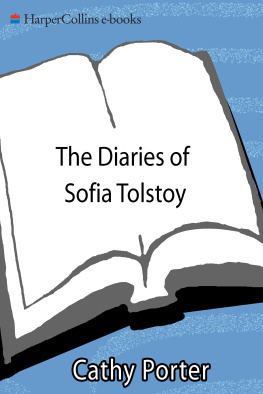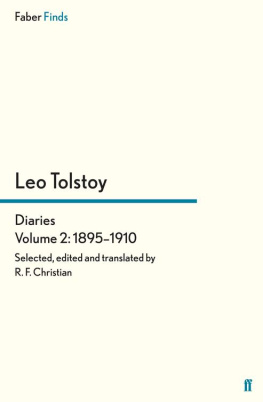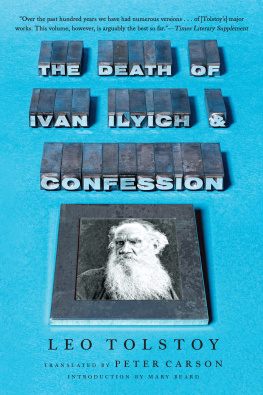A Confession
by Leo Tolstoy

A Confession
This edition published in Great Britain in 2009 by
White Crow Books
White Crow Books is an imprint of
White Crow Productions Ltd
PO Box 1013
Guildford
GU1 9EJ
www.whitecrowbooks.com
This edition copyright 2009 White Crow Productions
All rights reserved. Unauthorized reproduction, in any manner, is prohibited.
Text design and eBook production by Essential Works
www.essentialworks.co.uk
ISBN 978-1-907355-24-0
eBook ISBN 978-1-907355-69-1
Religion & Spirituality
Distributed in the UK by
Lightning Source Ltd.
Chapter House
Pitfield
Kiln Farm
Milton Keynes MK11 3LW
Distributed in the USA by
Lightning Source Inc.
246 Heil Quaker Boulevard
LaVergne
Tennessee 37086
Chapter 1
I was christened and educated in the faith of the Orthodox Greek Church; I was taught it in my childhood, and I learned it in my youth. Nevertheless, at eighteen years of age, when I quit the university, I had discarded all belief in anything that I had been taught. To judge by what I can now remember, I could never have had a very serious belief; it must have been a kind of trust in this teaching, based on one in my teachers and elders, and, moreover, a trust not very firmly grounded.
I remember once in my twelfth year, a boy, now long since dead, Vladimir M, a pupil in a gymnasium, spent a Sunday with us, and brought us the news of the latest discovery in the gymnasium, namely, that there was no God, and that all we were taught on the subject was a mere invention (this was in 1838). I remember well how interested my elder brothers were in this news; I was admitted to their deliberations, and we all eagerly accepted the theory as something particularly attractive and possibly quite true. I remember, also, that when my elder brother, Demetry, then at the university, with the impulsiveness natural to his character, gave himself up to a passionate faith, began to attend the church services regularly, to fast, and to lead a pure and moral life, we all of us, and some older than ourselves, never ceased to hold him up to ridicule, and for some incomprehensible reason gave him the nickname of Noah. I remember that Moussin-Poushkin, the then curator of the University of Kazan, having invited us to a ball, tried to persuade my brother, who had refused the invitation, by the jeering argument that even David danced before the Ark.
I sympathized then with these jokes of my elders, and drew from them this conclusion, that I was bound to learn my catechism, and go to church, but that it was not necessary to think of my religious duties more seriously. I also remember that I read Voltaire when I was very young, and that his tone of mockery amused without disgusting me. The gradual estrangement from all belief went on in me, as it does, and always has done, in those of the same social position and culture. This falling off, as it seems to me, for the most part goes on as follows: people live as others live, and their lives are guided, not by the principles of the faith which is taught them, but by their very opposite; belief has no influence on life, nor on the relations between men it is relegated to some other sphere where life is not; if the two ever come into contact at all, belief is only one of the outward phenomena, and not one of the constituent parts of life.
By a mans life, by his acts, it was then, as it is now, impossible to know whether he was a believer or not. If there be a difference between one who openly professes the doctrines of the Orthodox Church, and one who denies them, the difference is to the advantage of the former. The open profession of the Orthodox doctrines is mostly found among persons of dull intellects, of stern character, and who think much of their own importance. Intelligence, honesty, frankness, a good heart, and moral conduct are oftener met with among one those who are disbelievers. The schoolboy is taught his catechism and sent to church; from the grown man is required a certificate of his having taken the Holy Communion. A man, however, belonging to our class, neither goes to school nor is bound by the regulations affecting those in the public service, and may now live through long years still more was this the case formerly without being once reminded of the fact that he lives among Christians, and calls himself a member of the Orthodox Church.
Thus it happens that now, as formerly, the influence of early religious teaching, accepted merely on trust and upheld by authority, gradually fades away under the knowledge and practical experience of later life, which is opposed to all its principles, and that a man often believes for years that his early faith is still intact, while all the time not a particle of it remains in him.
A certain S, a clever and veracious man, once related to me how he came to cease to believe.
Twenty-six years ago, being on a hunting party, before he lay down to rest, according to a habit of his from childhood, he knelt down to pray. His elder brother, who was of the party, lay on some straw and watched him.
When S had finished, and was preparing to lie down, his brother said to him, Ah, you still keep that up? Nothing more passed between them, but from that day S ceased to pray and to go to church. For thirty years S has not said a prayer, has not taken the communion, has not been in a church, not because he shared the convictions of his brother, or even knew them, not because he had come to any conclusions of his own, but because his brothers words were like the push of a finger against a wall ready to tumble over with its own weight; they proved to him that what he had taken for belief was an empty form, and that consequently every word he uttered, every sign of the cross he made, every time he bowed his head during his prayers, his act was an unmeaning one. When he once admitted to himself that such acts had no meaning in them, he could not but discontinue them. Thus it has been, and is, I believe, with the large majority of men.
I speak of men of our class, of men who are true to themselves, and not of those who make of religion a means of obtaining some temporal advantage. (These men are truly absolute unbelievers, for if faith be to them a means of obtaining any worldly end, it is most certainly no faith at all.) Such men of our own class are in the following position: the knowledge and experience of active life has shattered the artificially constructed building of belief within, and they have either observed that and cleared away the superincumbent ruins, or they have remained unconscious of the destruction worked.
The belief instilled from childhood, in me, as in so many others, gradually disappeared, but with this difference, that as from fifteen years of age I had begun to read philosophical works, I was conscious of my own disbelief. From the age of sixteen I ceased to pray, and ceased, from conviction, to attend the services of the church and to fast. I no longer accepted the faith of my childhood, but I had a vague belief in something, though I do not think I could exactly explain in what. I believed in a God, or rather, I did not deny the existence of God, but anything relating to the nature of that godhead I could not have described; I denied neither Christ nor his teaching, but in what that teaching consisted I could not have said.
Now, when I think over that time, I see clearly that all the faith I had, the only belief which, apart from mere animal instinct, swayed my life, was a belief in a possibility of perfection, though what it was in itself, or what would be its results, I was unable to say. I endeavored to reach perfection in intellectual attainments: my studies were extended in every direction of which my life afforded me a chance; I strove to strengthen my will, forming for myself rules which I forced myself to follow; I did my best to develop my physical powers by every exercise calculated to give strength and agility, and by way of accustoming myself to patient endurance I subjected myself to many voluntary hardships and trials of privation. All this I looked upon as necessary to obtain the perfection at which I aimed. At first, of course, moral perfection seemed to me the main end, but I soon found myself contemplating in its stead an ideal of general perfectibility; in other words, I wished to be better, neither in my own eyes nor in those of God, but in the sight of other men. This feeling again soon ended in another, the desire to have more power than others, to secure for myself a greater share of fame, of social distinction, and of wealth.

